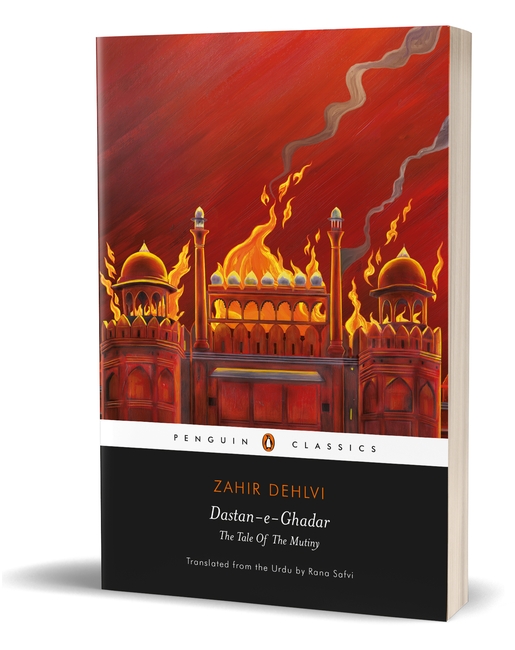
Zahir Dehlvi, an accomplished poet and official in the court of Bahadur Shah Zafar, lived through the cataclysmic Revolt of 1857 that changed the course of history, marking the end of Mughal dominion and the instatement of the British Raj. Dehlvi’s memoir, written on his deathbed, not only chronicles the fading glory of the Mughal court and his entry into a vanishing way of life, but also, most importantly, pivots on the horrifying spectacle of the Revolt and its aftermath—from the violent siege of Shahjahanabad to the bloody reprisals that followed. We learn about the brutal murder of the British Resident and the ensuing deaths of the European men, women and children who were sheltering inside the Qila. We also glimpse the emperor’s pleas to the rebels and his helplessness as they took over the Qila. Moreover, Dehlvi crucially elaborates on the plight of those who managed to escape the slaughter and carnage.
Translated into English for the first time, Dehlvi’s memoir is intensely vivid and moving, filled with incidents and rich in insight. An immensely significant historical record of the Revolt as it unfolded, Dastan-e-Ghadar is also a compelling personal account that conjures the dramatically changing world Dehlvi lived in.
Imprint: India Penguin Classics
Published: May/2024
ISBN: 9780143469001
Length : 350 Pages
MRP : ₹399.00
Here are six defining moments from the petition made to the then Mughal Emperor by rebellious soldiers that demystify the great revolt.
